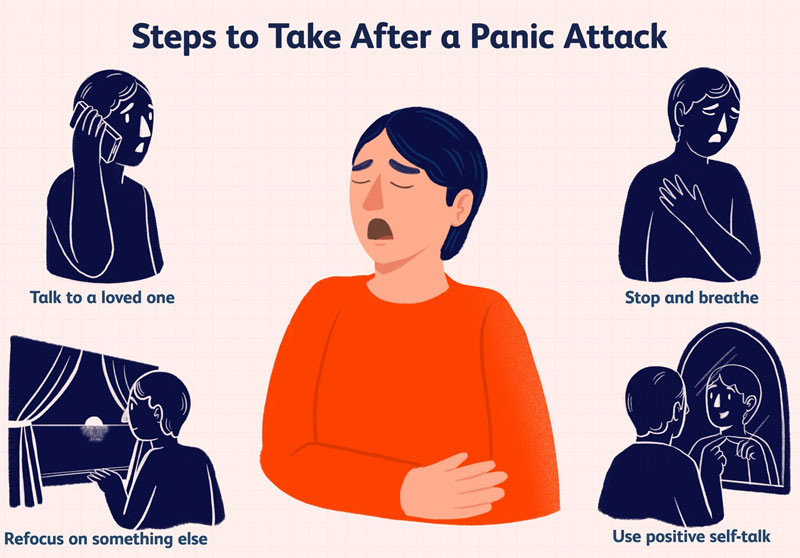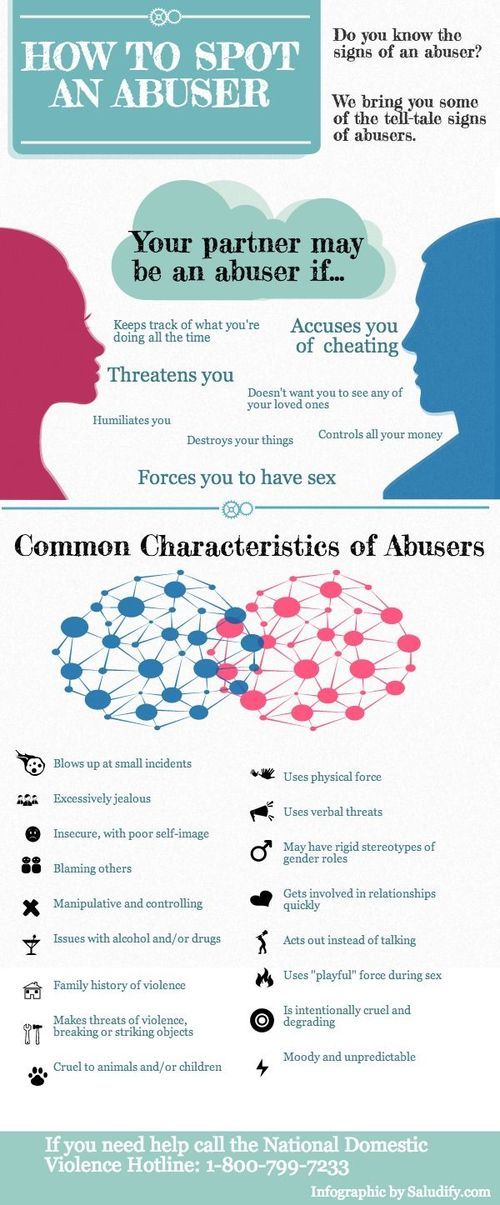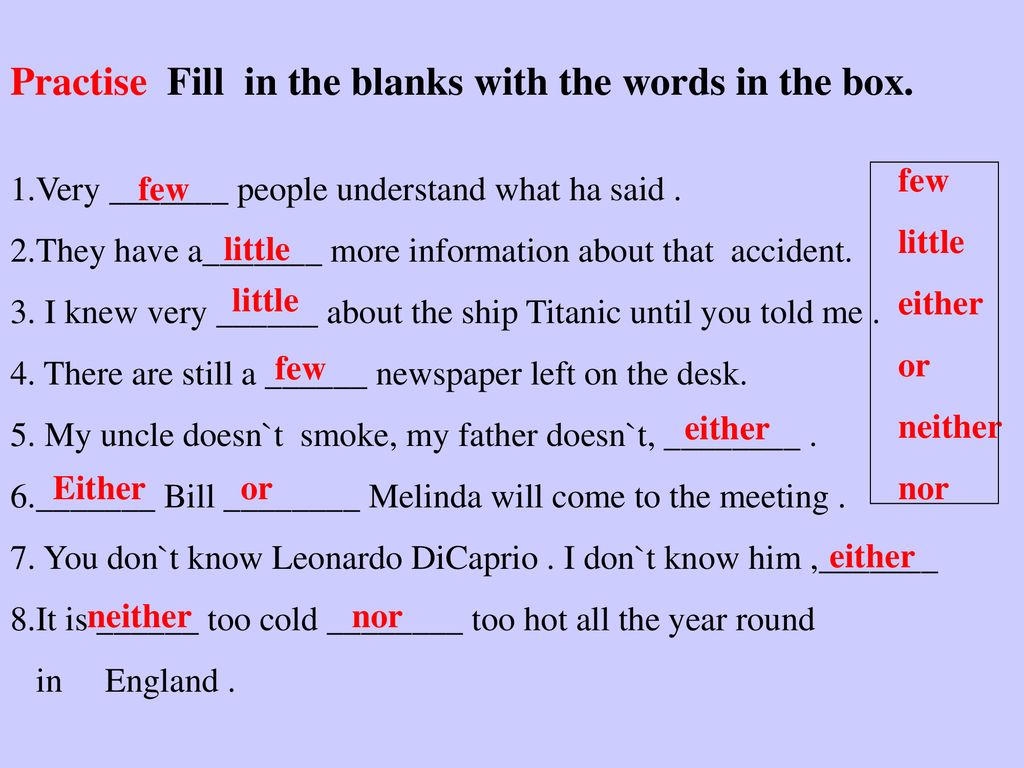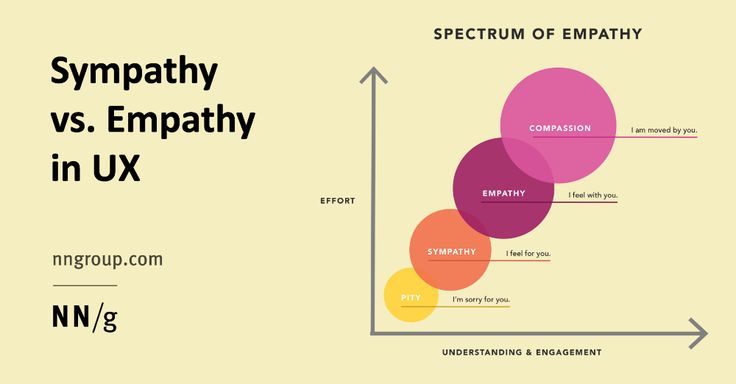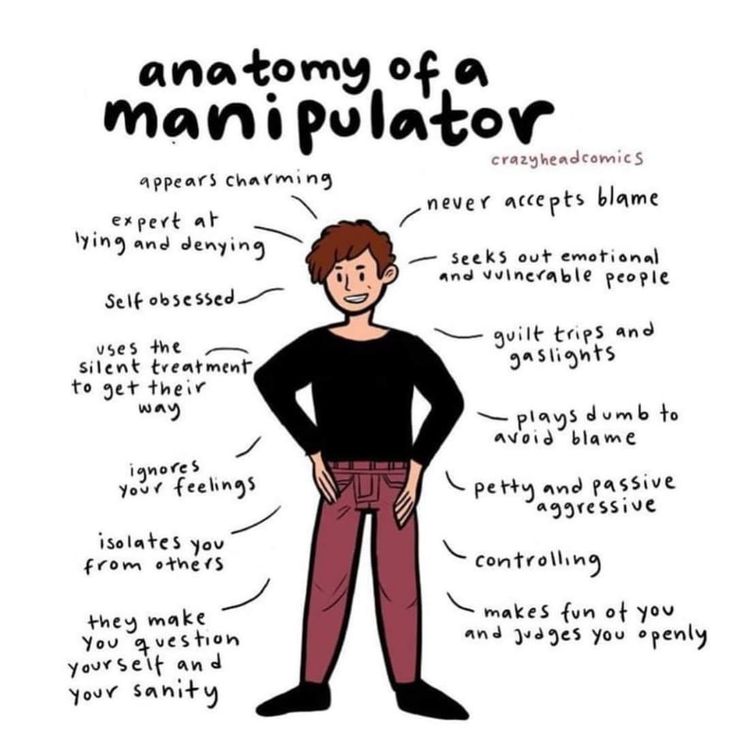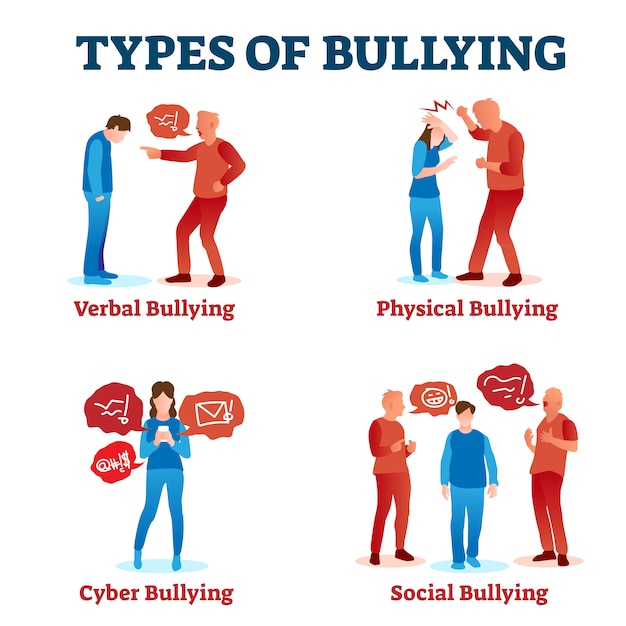What does it feel like to have a panic attack
How to deal with panic attacks
A panic attack is a feeling of sudden and intense anxiety.
Panic attacks can also have physical symptoms, including shaking, feeling disorientated, nausea, rapid, irregular heartbeats, dry mouth, breathlessness, sweating and dizziness.
The symptoms of a panic attack are not dangerous, but can be very frightening.
They can make you feel as though you are having a heart attack, or that you are going to collapse or even die.
Most panic attacks last somewhere from five minutes to half an hour.
How to handle a panic attack
Professor Paul Salkovskis, Professor of Clinical Psychology and Applied Science at the University of Bath, says it's important not to let your fear of panic attacks control you.
"Panic attacks always pass and the symptoms are not a sign of anything harmful happening," he says. "Tell yourself that the symptoms you're experiencing are caused by anxiety."
He says don't look for distractions. "Ride out the attack. Try to keep doing things. If possible, it's important to try to remain in the situation until the anxiety has subsided."
"Confront your fear. If you don't run away from it, you're giving yourself a chance to discover that nothing's going to happen."
As the anxiety begins to pass, start to focus on your surroundings and continue to do what you were doing before.
"If you’re having a short, sudden panic attack, it can be helpful to have someone with you, reassuring you that it will pass and the symptoms are nothing to worry about," says Professor Salkovskis.
Breathing exercise for panic attacks
If you’re breathing quickly during a panic attack, doing a breathing exercise can ease your other symptoms. Try this:
- breathe in as slowly, deeply and gently as you can, through your nose
- breathe out slowly, deeply and gently through your mouth
- some people find it helpful to count steadily from one to five on each in-breath and each out-breath
- close your eyes and focus on your breathing
You should start to feel better in a few minutes. You may feel tired afterwards.
You may feel tired afterwards.
Visit the No Panic website for another breathing exercise to calm panic.
Ways to prevent panic attacks
"You need to try to work out what particular stress you might be under that could make your symptoms worse," says Professor Salkovskis. "It's important not to restrict your movements and daily activities."
- Doing breathing exercises every day will help to prevent panic attacks and relieve them when they are happening
- Regular exercise, especially aerobic exercise, will help you to manage stress levels, release tension, improve your mood and boost confidence
- Eat regular meals to stabilise your blood sugar levels
- Avoid caffeine, alcohol and smoking – these can make panic attacks worse. Panic support groups have useful advice about how you can effectively manage your attacks. Knowing that other people are experiencing the same feelings can be reassuring. Your GP can put you in touch with groups in your area
- Cognitive behavioural therapy (CBT) can identify and change the negative thought patterns that are feeding your panic attacks
Is it panic disorder?
If you feel constantly stressed and anxious, particularly about when your next panic attack may be, you may have panic disorder.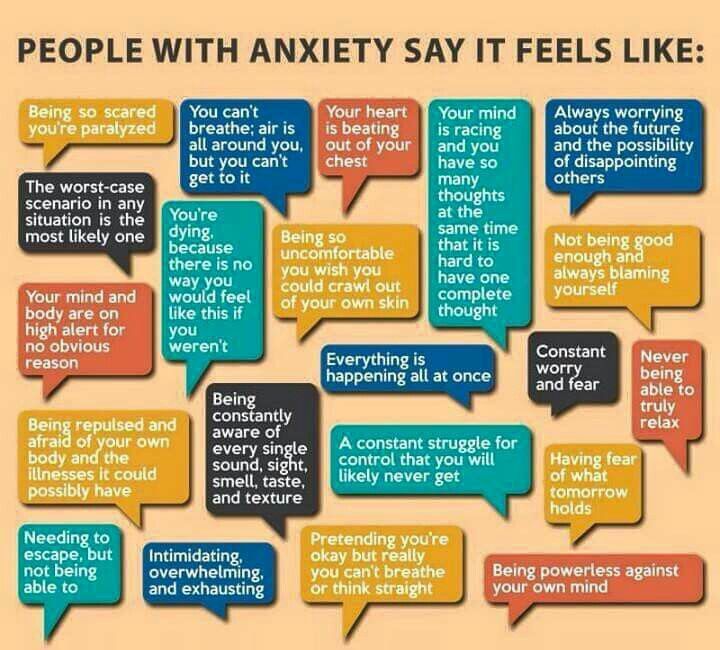
People with panic disorder may avoid situations that might cause a panic attack. They may also fear and avoid public spaces (agoraphobia).
"There's no quick fix, but if your attacks are happening time after time, seek medical help," says Professor Salkovskis.
Read more about panic attacks, including personal stories, at See Me Scotland.
Panic attacks and panic disorder - Symptoms and causes
Overview
A panic attack is a sudden episode of intense fear that triggers severe physical reactions when there is no real danger or apparent cause. Panic attacks can be very frightening. When panic attacks occur, you might think you're losing control, having a heart attack or even dying.
Many people have just one or two panic attacks in their lifetimes, and the problem goes away, perhaps when a stressful situation ends. But if you've had recurrent, unexpected panic attacks and spent long periods in constant fear of another attack, you may have a condition called panic disorder.
Although panic attacks themselves aren't life-threatening, they can be frightening and significantly affect your quality of life. But treatment can be very effective.
Products & Services
- Book: Mayo Clinic Family Health Book, 5th Edition
- Newsletter: Mayo Clinic Health Letter — Digital Edition
Symptoms
Panic attacks typically begin suddenly, without warning. They can strike at any time — when you're driving a car, at the mall, sound asleep or in the middle of a business meeting. You may have occasional panic attacks, or they may occur frequently.
Panic attacks have many variations, but symptoms usually peak within minutes. You may feel fatigued and worn out after a panic attack subsides.
Panic attacks typically include some of these signs or symptoms:
- Sense of impending doom or danger
- Fear of loss of control or death
- Rapid, pounding heart rate
- Sweating
- Trembling or shaking
- Shortness of breath or tightness in your throat
- Chills
- Hot flashes
- Nausea
- Abdominal cramping
- Chest pain
- Headache
- Dizziness, lightheadedness or faintness
- Numbness or tingling sensation
- Feeling of unreality or detachment
One of the worst things about panic attacks is the intense fear that you'll have another one.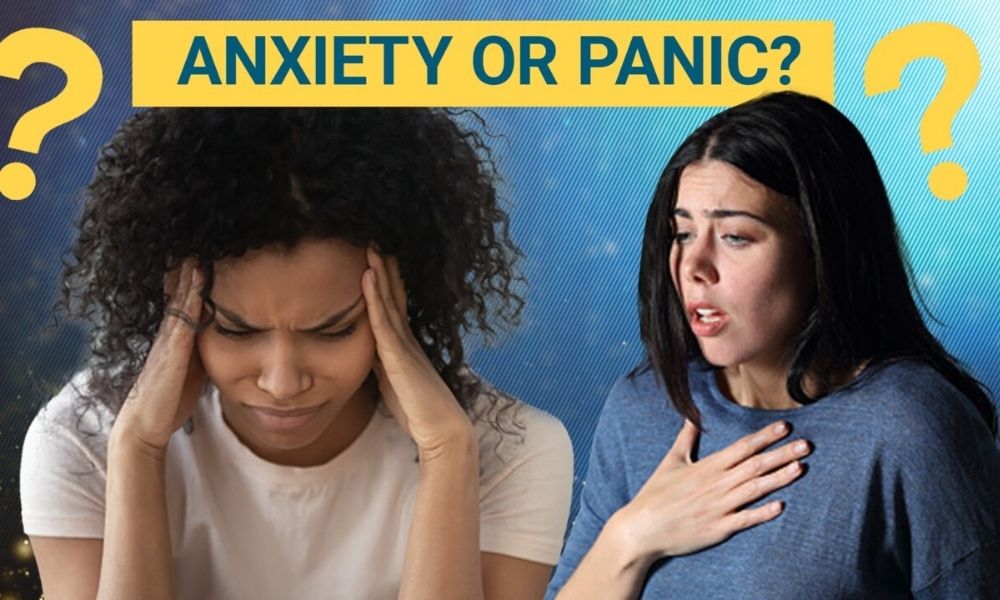 You may fear having panic attacks so much that you avoid certain situations where they may occur.
You may fear having panic attacks so much that you avoid certain situations where they may occur.
When to see a doctor
If you have panic attack symptoms, seek medical help as soon as possible. Panic attacks, while intensely uncomfortable, are not dangerous. But panic attacks are hard to manage on your own, and they may get worse without treatment.
Panic attack symptoms can also resemble symptoms of other serious health problems, such as a heart attack, so it's important to get evaluated by your primary care provider if you aren't sure what's causing your symptoms.
Request an Appointment at Mayo Clinic
From Mayo Clinic to your inbox
Sign up for free, and stay up to date on research advancements, health tips and current health topics, like COVID-19, plus expertise on managing health.
To provide you with the most relevant and helpful information, and understand which
information is beneficial, we may combine your email and website usage information with
other information we have about you. If you are a Mayo Clinic patient, this could
include protected health information. If we combine this information with your protected
health information, we will treat all of that information as protected health
information and will only use or disclose that information as set forth in our notice of
privacy practices. You may opt-out of email communications at any time by clicking on
the unsubscribe link in the e-mail.
If you are a Mayo Clinic patient, this could
include protected health information. If we combine this information with your protected
health information, we will treat all of that information as protected health
information and will only use or disclose that information as set forth in our notice of
privacy practices. You may opt-out of email communications at any time by clicking on
the unsubscribe link in the e-mail.
Causes
It's not known what causes panic attacks or panic disorder, but these factors may play a role:
- Genetics
- Major stress
- Temperament that is more sensitive to stress or prone to negative emotions
- Certain changes in the way parts of your brain function
Panic attacks may come on suddenly and without warning at first, but over time, they're usually triggered by certain situations.
Some research suggests that your body's natural fight-or-flight response to danger is involved in panic attacks. For example, if a grizzly bear came after you, your body would react instinctively. Your heart rate and breathing would speed up as your body prepared for a life-threatening situation. Many of the same reactions occur in a panic attack. But it's unknown why a panic attack occurs when there's no obvious danger present.
More Information
- Nocturnal panic attacks: What causes them?
Risk factors
Symptoms of panic disorder often start in the late teens or early adulthood and affect more women than men.
Factors that may increase the risk of developing panic attacks or panic disorder include:
- Family history of panic attacks or panic disorder
- Major life stress, such as the death or serious illness of a loved one
- A traumatic event, such as sexual assault or a serious accident
- Major changes in your life, such as a divorce or the addition of a baby
- Smoking or excessive caffeine intake
- History of childhood physical or sexual abuse
Complications
Left untreated, panic attacks and panic disorder can affect almost every area of your life. You may be so afraid of having more panic attacks that you live in a constant state of fear, ruining your quality of life.
You may be so afraid of having more panic attacks that you live in a constant state of fear, ruining your quality of life.
Complications that panic attacks may cause or be linked to include:
- Development of specific phobias, such as fear of driving or leaving your home
- Frequent medical care for health concerns and other medical conditions
- Avoidance of social situations
- Problems at work or school
- Depression, anxiety disorders and other psychiatric disorders
- Increased risk of suicide or suicidal thoughts
- Alcohol or other substance misuse
- Financial problems
For some people, panic disorder may include agoraphobia — avoiding places or situations that cause you anxiety because you fear being unable to escape or get help if you have a panic attack. Or you may become reliant on others to be with you in order to leave your home.
Prevention
There's no sure way to prevent panic attacks or panic disorder. However, these recommendations may help.
However, these recommendations may help.
- Get treatment for panic attacks as soon as possible to help stop them from getting worse or becoming more frequent.
- Stick with your treatment plan to help prevent relapses or worsening of panic attack symptoms.
- Get regular physical activity, which may play a role in protecting against anxiety.
By Mayo Clinic Staff
Related
Associated Procedures
Products & Services
Panic attacks
Panic attacks (episodic paroxysmal anxiety) - attacks of severe anxiety (panic) or fear (most often - fear of death, less often - fear of loss of consciousness, loss of control, helplessness or fear of "going crazy"), accompanied by a rapid heartbeat and a feeling of " suffocation, shortness of breath. Sometimes there are additional symptoms such as increased blood pressure, a feeling of "internal trembling", trembling in the limbs, a feeling of "hot flashes" of heat or cold, numbness of the extremities, increased sweating, a feeling of "unstability" or dizziness, nausea, derealization or depersonalization, etc. nine0005
nine0005
Panic attacks last on average 5 to 30 minutes. However, sometimes they can last several hours, and in rare cases - up to several days.
I must say that even 30 years ago this disease was extremely rare. But now the incidence of panic attacks is increasing exponentially every year! Especially in big cities. Alas, panic attacks are considered a “disease of megacities”. And they suffer, most often, people with increased anxiety and the so-called perfectionists. nine0005
Earlier, in Soviet medicine, this disorder was called " sympathoadrenal crises ". This name, more than the modern one, reflected the essence of the processes occurring in the body during panic attacks. Nevertheless, I will not bother readers with a description of biochemical processes and a list of the hormones and neurotransmitters involved in these reactions. Knowing this practically does not affect the fact of the occurrence of seizures. Because biochemical processes are just an "intermediate link" in the chain of cause and effect relationships occurrence of panic attacks .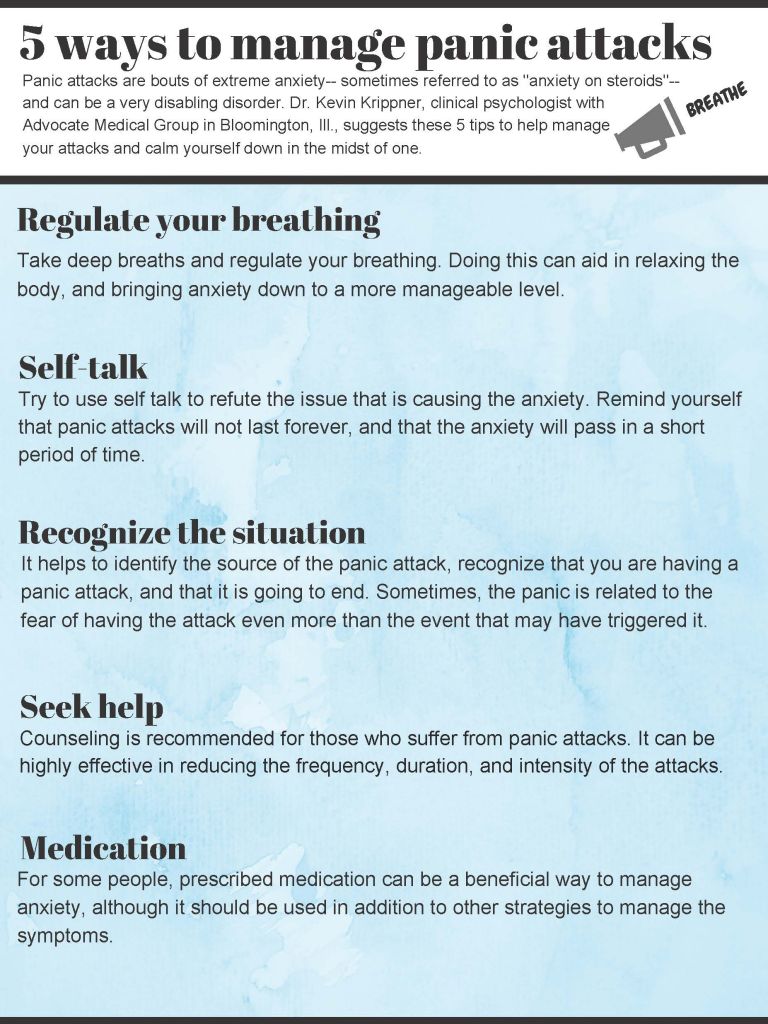 What then is the "primary link", so to speak, the root cause?
What then is the "primary link", so to speak, the root cause?
Panic attacks occur suddenly, and, as it often seems, without any external causes or under the influence of minor unpleasant factors (an ordinary quarrel in the family, another trouble at work, overcrowding and stuffiness in a subway or train car, a long “traffic jam” on the road, etc.). etc.). In fact, panic attacks always occur against the background of an already long-term depression (most common), or after repeated or severe stress (or rather, distress). Don't be surprised by this, because it is quite difficult for an ordinary person, not a specialist, to diagnose depression. Especially, at himself. Moreover, its mild or atypical forms. Especially if it lasts a year or several years (and for some people - since childhood!). In this case, they may not even remember how they felt without depression. In this variant, the body functions “with the last of its strength”, works “at the limit of its capabilities”; and some minor unpleasant event can be the “last straw” for him! nine0003 Figuratively speaking, a panic attack is “hysteria of the body”, its “desperate cry: “I can’t do this anymore !!!”
Well, in the question "Who is to blame?" figured it out.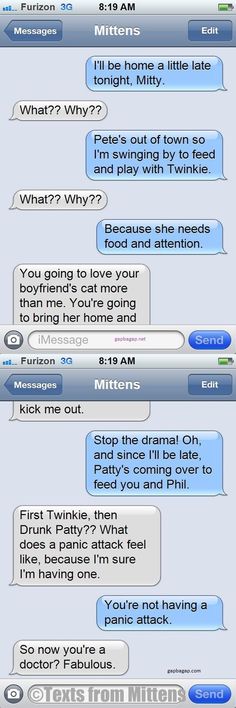 Now let's move on to the equally important question "What to do?" The fact that no one in the world has yet died from panic attacks is little consolation for those suffering from this excruciating disorder. To say that panic attacks are an unpleasant state is an understatement! These are unbearable sensations, and in the most severe cases, a real feeling of approaching death, which a person is sometimes forced to experience daily! And most importantly, he does not understand what is happening to him, and how to stop it! nine0005
Now let's move on to the equally important question "What to do?" The fact that no one in the world has yet died from panic attacks is little consolation for those suffering from this excruciating disorder. To say that panic attacks are an unpleasant state is an understatement! These are unbearable sensations, and in the most severe cases, a real feeling of approaching death, which a person is sometimes forced to experience daily! And most importantly, he does not understand what is happening to him, and how to stop it! nine0005
Panic attacks sharply reduce the quality of a person's life, subordinating her entire expectation of the next attack. And, accordingly, they affect social activity, sometimes making a person completely incapacitated.
When panic attacks first appeared in the clinical practice of physicians, they were treated empirically with various sedatives and tranquilizers. However, after their cancellation, the seizures reappeared, and with prolonged use of these drugs, tolerance (insensitivity) inevitably and rather quickly set in.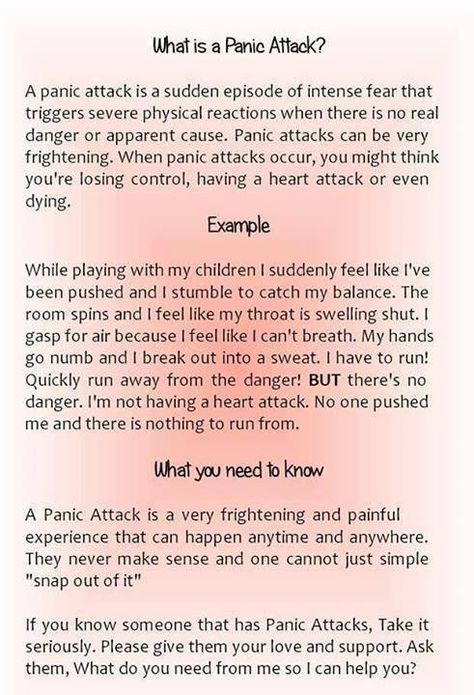 Therefore, in order to stop panic attacks, it was necessary to constantly increase doses or resort to more “strong” tranquilizers. But everywhere there is a limit: the number of tranquilizers is not unlimited, especially their doses. It was necessary to remember another very important aspect: long-term use of these drugs causes dependence on them. And after the abolition of tranquilizers, the symptoms of mental and physical withdrawal joined the renewed panic attacks, which further worsened the patient's condition. nine0005
Therefore, in order to stop panic attacks, it was necessary to constantly increase doses or resort to more “strong” tranquilizers. But everywhere there is a limit: the number of tranquilizers is not unlimited, especially their doses. It was necessary to remember another very important aspect: long-term use of these drugs causes dependence on them. And after the abolition of tranquilizers, the symptoms of mental and physical withdrawal joined the renewed panic attacks, which further worsened the patient's condition. nine0005
Then the tactics of treatment were somewhat changed: antidepressants were added to "light" or small doses of "medium-powered" tranquilizers. And it was a "breakthrough" in the treatment of panic attacks! Because antidepressants do not just "relieve" the symptoms, but they affect the foundation on which these attacks are based - depression itself! Of course, in modern medicine there are a huge number of antidepressants, and the effectiveness of their effect on panic attacks is very different.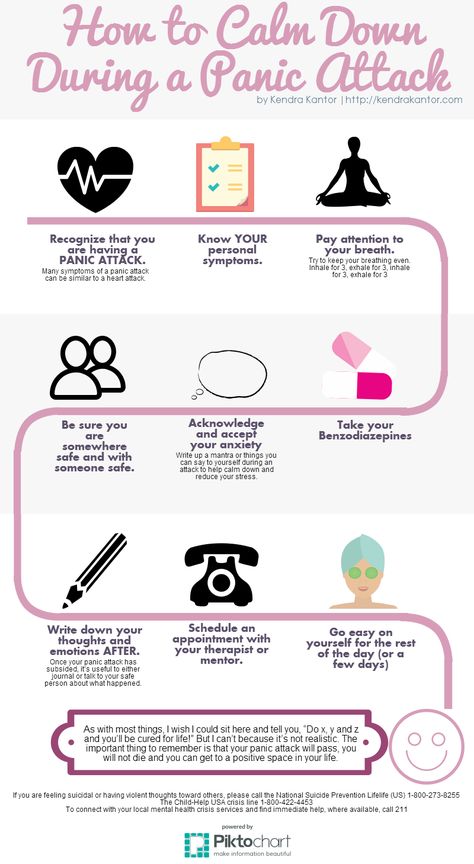 But an experienced psychotherapist or psychiatrist can quite accurately select a drug that is suitable for a particular person. It is important to note that antidepressants have a cumulative effect, so their therapeutic effect does not appear immediately after the appointment, but after a certain time (on average, after a month). And, here, the full duration of treatment with antidepressants is, at best, from 6 to 12 months, and sometimes up to several years. nine0005
But an experienced psychotherapist or psychiatrist can quite accurately select a drug that is suitable for a particular person. It is important to note that antidepressants have a cumulative effect, so their therapeutic effect does not appear immediately after the appointment, but after a certain time (on average, after a month). And, here, the full duration of treatment with antidepressants is, at best, from 6 to 12 months, and sometimes up to several years. nine0005
At the same time, there are cases of especially severe courses of panic attacks, when the appointment of even "powerful" antidepressants for a sufficiently long time does not bring the desired effect, i.e. panic attacks do not stop completely, but only become less pronounced or occur less frequently. In this version, a person, anyway, does not feel healthy and constantly lives in fear of the next attack. In this case, doctors are forced to launch "heavy artillery" - to add NEUROLEPTICS to the treatment, which patients have to take for quite a long time.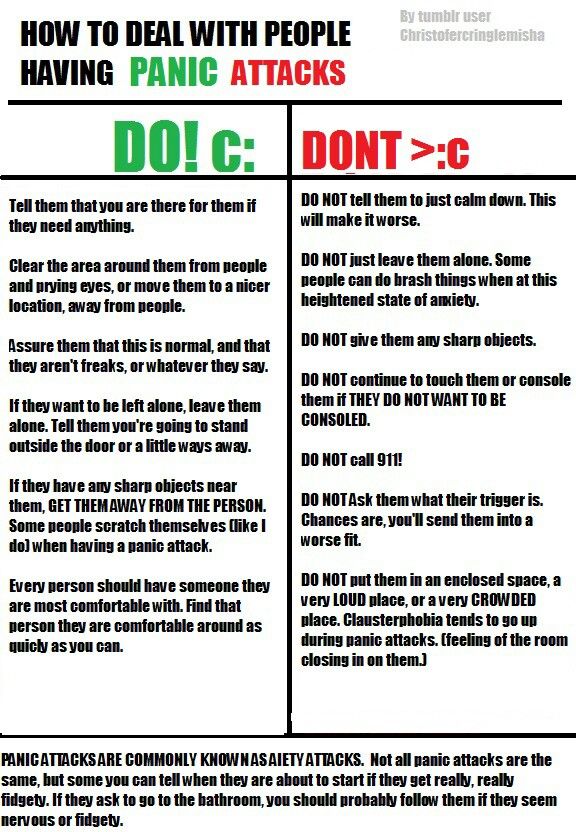 Antipsychotics have a large number of unpleasant side effects, which is why many patients refuse them. nine0005
Antipsychotics have a large number of unpleasant side effects, which is why many patients refuse them. nine0005
However, there is another way to treat panic attacks. He is not a drug! That is, there is a REAL METHOD OF COMPLETE CURING FROM PANIC ATTACKS, ABSOLUTELY WITHOUT RESORTING TO ANY KIND OF MEDICINES !!! This method is PSYCHOTHERAPEUTIC.
In the modern world there are a lot of different types and directions of psychotherapy. But, it must be said bluntly that with panic attacks, most of them are not effective without medical support. nine0005
However, the method that I use in my psychotherapeutic work is unique. It often allows you to completely eliminate panic attacks in 1 session! One or two more sessions are required to eliminate the FEAR of the appearance of seizures (or their expectation).
But in order to begin the direct elimination of panic attacks, a certain “intellectual” preparation of the patient is necessary. It requires from 8 to 12 sessions (depending on the severity of the disease and the personal characteristics of the patient) with a frequency of 1-2 sessions per week.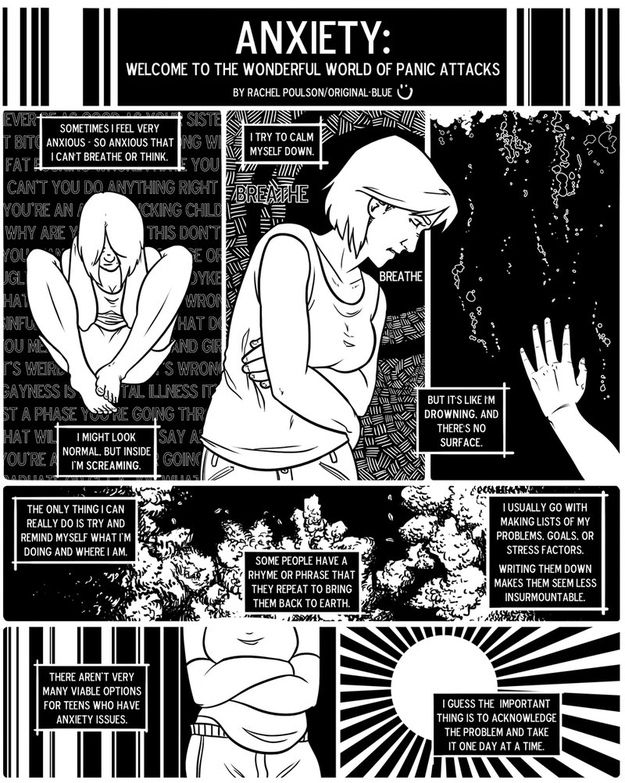 nine0005
nine0005
After eliminating panic attacks and the fear of their occurrence, it is extremely important to “develop” the underlying causes that led to their appearance. This will be a kind of "insurance" against the occurrence of panic attacks in the future. This requires 3-4 months on average (with the frequency of classes 1 time per week). But, having worked through these “deep roots”, a person not only completely gets rid of panic attacks, but also depression, solves many personal problems and begins to live a full life! nine0005
Panic attacks. Whom to contact and how a neurologist can help?
Over the past 2 years, much has changed in the life of all mankind. We have to adapt to new, sometimes very difficult, conditions. From TV and the Internet, we are constantly pressed with disturbing news and not the best forecasts, or the unknown in the future.
Someone copes with this easily and is ready for change, while someone falls into a state of panic and cannot do anything about it. The normal reaction of people when faced with the difficulties of life is to try to understand what is happening and what to do with it next. nine0005
The normal reaction of people when faced with the difficulties of life is to try to understand what is happening and what to do with it next. nine0005
Our body is a mirror of our mental state and reflects these problems in the form of symptoms that are difficult to distinguish from serious diseases of organic origin.
On one not the best day, a person is faced with a new state for himself and begins to suspect that has covered him with a panic attack . Let's figure out what it is, how to survive this state and not go crazy (despite the fact that before that you clearly controlled everything in life) and what strategy to develop in order to emerge victorious from this situation. nine0005
Panic attack (panic) is a short-term episode of intense anxiety with a sudden onset, reaching a maximum within a few minutes, accompanied by anxiety or fear of death, loss of control, combined with severe disturbances in the work of the heart, respiratory system, gastrointestinal tract.
If this condition begins to recur (with the symptoms may vary slightly), then doctors are already talking about panic disorder or episodic paroxysmal anxiety . Unfortunately, the patient quickly develops a fear of waiting for an attack.
Signs of a panic attack
-
Heart . The characteristic onset of an attack is accompanied by symptoms from the cardiovascular system - with a sudden onset of a "strong heartbeat", a feeling of "interruptions", "stop", discomfort or pain in the region of the heart.
- nine0002 Pressure . Most panic attacks are accompanied by a rise in blood pressure, the numbers of which can be quite high.
-
Suffocation . The most pronounced violations in the respiratory system: shortness of breath, a feeling of lack of air with shortness of breath and hyperventilation, "a feeling of suffocation." Describing an attack, patients report that they “caught their throat”, “the air stopped flowing”, “it became stuffy”.
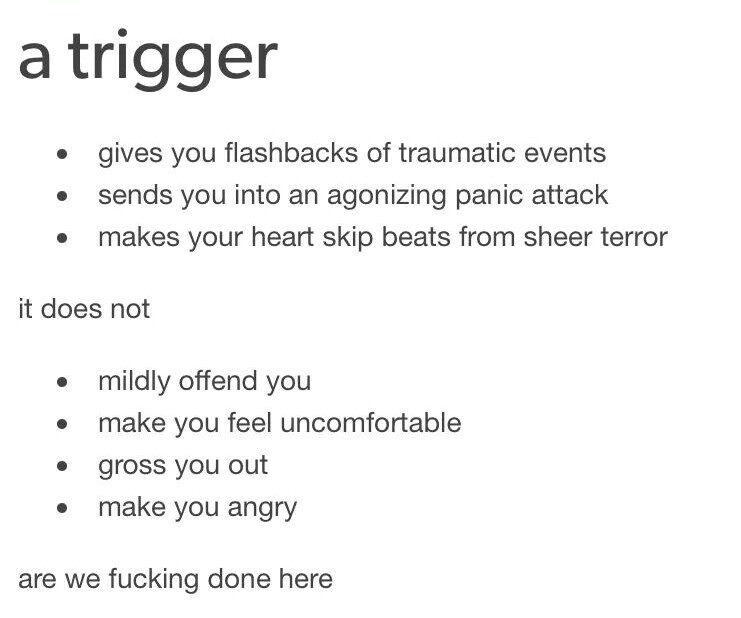 nine0005
nine0005 -
Indigestion . Gastrointestinal disturbances such as nausea, vomiting, belching, epigastric discomfort, feeling of fullness or abdominal pain may also be observed. As a rule, at the time of a panic attack, dizziness, sweating, tremor with a feeling of chills, “waves” of heat and cold, paresthesia, coldness of the hands and feet are observed.
-
Appearance . Changes in complexion, pulse rate, fluctuations in blood pressure are objectively determined, and dissociation is often found between the subjective experience of autonomic disorders by patients and their severity during an objective examination.
The disease can develop slowly, over months or years, or it can develop quickly, over days or weeks.
As panic attacks continue, they can be associated with various life circumstances, which become, as it were, conditioned stimuli. Attacks can be repeated in similar situations in which the attack occurred for the first time (metro, transport, loneliness), fear is formed in anticipation of an attack. nine0005
nine0005
How can you help yourself with a panic attack?
- Analyze the situation . If you have the above symptoms, you must first determine whether this is a panic attack as a one-time occurrence against the background of stress (illness) or there is a fixation of panic and you will clearly need medical help.
- Focus on your breath . Remember that the first first aid is to go out into the air, deeply and consciously begin to breathe. If there is no way to walk, then just lie down, take a comfortable position, breathe deeply and slowly. nine0078
- Don't be alone . Do not hesitate to ask for help from those who are nearby, do not hide your condition. Discuss what happened. Don't be alone with the problem!
- Make an appointment with a doctor . If the episodes recur, a doctor can help resolve the problem. Before taking, think about the circumstances under which seizures occur. These can be:
- viewing disturbing news;
- conversation with a friend, quarrel with relatives; nine0078
- situation at work with colleagues;
- study exam;
- watching movies;
- trip in public transport, in an elevator, etc.
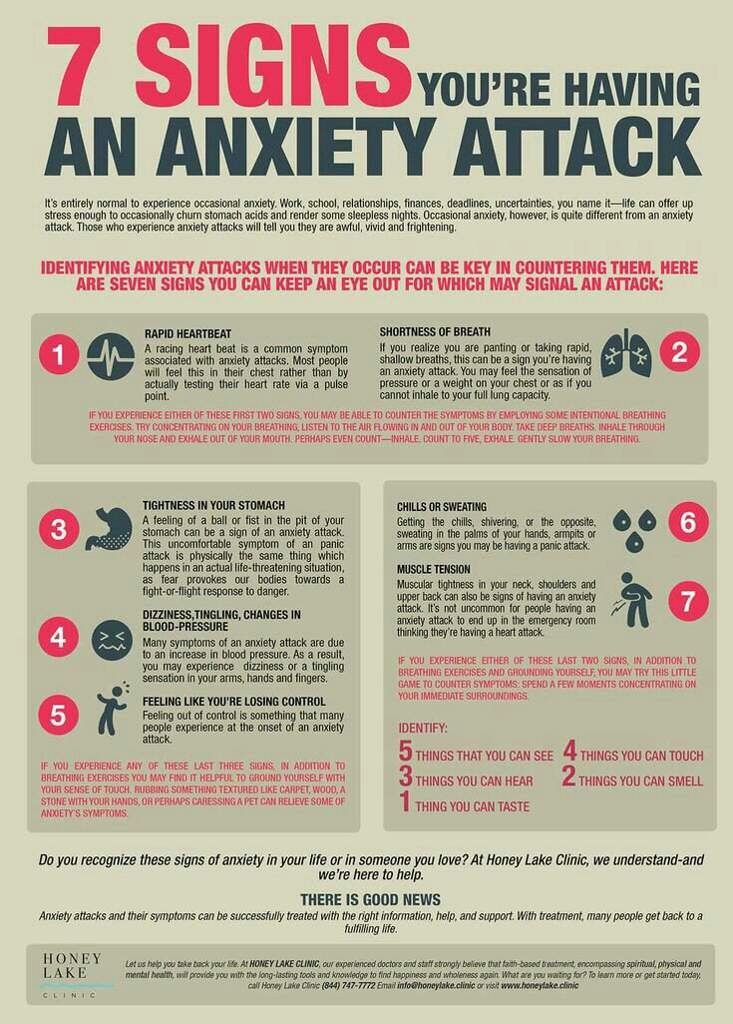 ).
).
Panic attack treatment by a neurologist
Many people ask the question: how and how can a neurologist help me? It's forever. Nothing like this! It is a myth. Panic attacks are very well treated. If you think about it, it's time to contact a neurologist and strictly follow his recommendations. nine0145
- The doctor will examine you,
- will conduct tests,
- listens carefully, asks specific questions,
- will match the symptoms and facts of your life,
- will prescribe a basic treatment that will start working immediately.
- If necessary, will prescribe additional examinations.
The doctor will tell you how to act correctly in your individual situation!
- If at the appointment he reveals violations of the cardiovascular system that are clearly permanent in nature, he will refer you to a cardiologist, for an ECG, for monitoring heart rate (Holter). This is necessary to determine if there is a pathology of the heart and whether it is necessary to take control of the heart rhythm and heart rate with medication.
